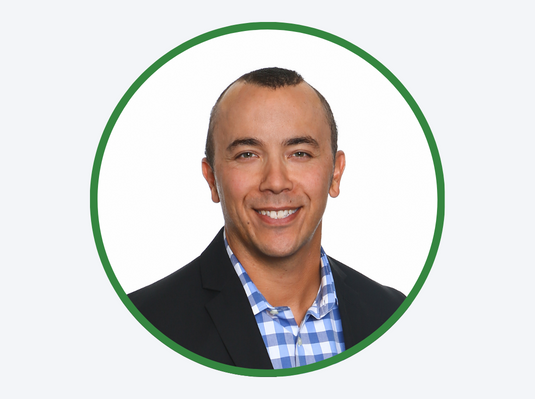
The Beginner’s Guide to Selling Insurance
In this beginner’s guide, we’ll explore what an insurance agent does in a day, the difference in types of insurance you can sell, and the pros and cons of being a producer versus an agency owner.
What does an insurance agent really do?
When you strip an insurance agent’s role down to its most basic function, it is selling insurance policies. Now, if we inspect the details a bit more, an agent works with new and existing clients to help them understand the options available to them, promote the best policy(s) for their situation, and complete the paperwork needed to close the sale.
If we expand that lens further, agents will continually market and network to win new clients and foster existing relationships. This includes promoting themselves to their online networks and communities to win new clients, as well as maintaining licenses through continuing education to better serve existing clients.
After the sale, it may look different depending on if you work for yourself or for a parent organization, or if you’ve chosen to work with a captive, independent, or franchise insurance company. You may find that some of the back-office functions like customer service, finance, and marketing are handled for you if you choose a certain path over another. If you are handling after-the-sale functions yourself, your day may also consist of bookkeeping and helping to process claims.
Selling insurance isn’t a job for everyone, and if you’re considering this career, you should understand what qualities you possess that might make you a good fit for sales. You’ll experience rejection often, but if your strongest skills are your ability to bounce back, show grit, and be persistent, you’ll find the reward of helping people get something they truly need outweighs any deals that fall through.
Insurance agents, especially those who own agencies, may find that choosing this career results in more flexibility and remote working. Once you’ve created a steady client base, you may be able to match the job to your lifestyle. You can choose to hire producers to take the daily tasks off your hands and focus more on building relationships that generate lead flow.
What are the different types of insurance I can sell?
We can break insurance down into five main categories: auto, health, life, home, and specialty. However, these can be bundled into two major groups:
- Property & Casualty Insurance: This insurance covers property and liability. It includes auto, home, and some specialty insurance policies, such as umbrellas, boats, and RVs.
- Life & Health Insurance: This insurance includes life and health insurance and consists of insurance that has a direct impact on people’s lives.
Which insurance you choose to sell depends on your personal goals. Each type of insurance offers different commissions and residuals, so whichever one(s) you go with should depend on if you want a higher commission upfront or on an ongoing basis.
Property & Casualty Insurance
This is a type of insurance that most people need, so there’s a large pool of potential clients. You get a commission upfront at the sale, but the potential for commission on residuals over time is where selling this type of insurance becomes most lucrative. The general consumer tends to gravitate toward the lowest premium for these types of policies, but with a little education and ongoing conversations with clients, you could get them into the best policy for their situation.
Life & Health Insurance
Life insurance is the most profitable insurance type to sell upfront and is also one of the most simple to understand. However, not everyone opts into life insurance or may do so later in life. Additionally, health insurance commissions are not as high as life insurance, but the advantage to selling health insurance is that everybody needs it.
What do I have to do to get an insurance license?
While you don’t need a college degree to sell insurance, you do need to pass a licensing exam in your state. Most states will offer pre-licensing training courses in person or online, as well as instructor-led and self-study course types. Once you complete your course, you’ll take your licensing exam. You must pass this exam to sell insurance, so dedication to your pre-licensing training course is vital to passing your exam the first time.
Once you pass your exam, you’ll apply for your license, after which you can begin selling insurance. Your state will have specific continuing education requirements, allowing you to stay up-to-date with the newest laws and changes. If you do not adhere to the continuing education schedule, your license will lapse, exposing you to risk.
Should I work for a company or for myself?
You can choose to be an agency owner and work for yourself, or you can go the producer (employee) route and strictly sell insurance without the responsibility of owning your own business. On top of that, you can choose between working for a captive agency, an independent broker, or franchise organization. Let’s break down each of these.
Agency Owner vs. Producer
As an agency owner, you’ll run your own business and be solely responsible for its success. Additionally, you’ll enjoy more autonomy and bigger commission potential. If you have the drive and desire to be a small business owner and meet the financial and background qualifications to do so, this may be a good route to consider.
On the other hand, if you’re just starting out and want to get your feet wet selling insurance, being a producer might be the better bet. You can still earn commissions based on performance, and as you collect more experience selling insurance, you could turn it into a business later down the line.
Captive vs. Independent vs. Independent Franchise
A captive insurance agency sells one branded product. While clients seek out your product or can be loyal to the brand, you may be limited in the options you can provide, and your best offer might not beat an offer they've received elsewhere.
An independent agency sells several insurance brands and can, therefore, offer more choices to its clients. However, if an independent agency isn’t affiliated with a parent organization, the agency owner and producers may be left with all the back office functions like customer service, securing appointments, and bookkeeping.
An independent franchise agency also sells several insurance brands and shops for the best offers on behalf of its clients. A franchisee often gets to focus primarily on selling since back office functions are usually taken off their plate. However, a franchisee must be able to work within an established business model and navigate set internal processes, which can mean giving up some decision-making power.
What is my commission and salary potential?
Salary and commission potential depend on what options you choose for yourself (i.e., the type of insurance you sell and the type of agency you own or work for). Even more important than that, however, is your work ethic. Some agents choose to sell as a second job, while others put their full-time efforts into their careers.
Some types of insurance, like life insurance, produce higher commissions upon sale, while others pay out better over time through renewals and residuals. Whether you want to come out of the gate swinging or play the long game and cash in on passive income, being persistent and building up a quality client base should be any new agent’s first priority. Once you’ve done that, you’ll hopefully experience a snowball effect that results in a lucrative career choice.
Want to explore insurance franchising? Reach out to Goosehead’s Franchise Development team to learn more about whether owning an agency is the right career path for you.
Want to sell insurance as a producer? Visit our Careers page to apply for a career as a corporate Account Executive.
Speak with Our Team



